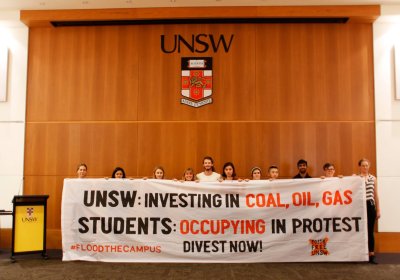Meals on Wheels. Teacher training, after-school, and summer educational programs. The National Endowment for the Arts. The Appalachian Regional Commission. The National Institutes of Health (NIH). The Environmental Protection Agency (EPA).
1130
Venezuelan Minister of Foreign Relations Delcy Rodriguez issued an official statement on March 14 rejecting Organization of American States (OAS) Secretary General Luis Almagro’s latest report calling for the suspension of the South American nation if general elections are not held “as quickly as possible”.
Brazilians took to the streets in a nationwide protest on March 15 against President Michel Temer's pension reform plan. "This is the first unified mobilisation this year and opens the calendar of an intense agenda that we will have in 2017 to denounce the setbacks that penalise workers, such as reforms to the retirement system and labour legislation," said the organisers in a statement.
Today, as vaccinations are being used as a political weapon, we need to look again at the science and when, where and how they matter. We also need to question whether the punitive way the major parties are driving policy on immunisations will increase the vaccination rate.
Over hundreds of years, immunisation has been scientifically proven to prevent many diseases. It is worth examining some of the history that promoted the realisation that diseases can be prevented.
Scotland’s first minister Nicola Sturgeon says she plans to trigger another independence referendum. The Scottish National Party leader said the new poll should be in 2018 or 2019, Irish Republican News reported on March 13.
“Right now, Scotland stands at a hugely important crossroads,” Sturgeon said, referring to the “Brexit” vote that will take all of Britain out of the European Union, despite a majority in Scotland voting to remain.
The 2017 state election marked a modest but important advance for Socialist Alliance in Western Australia.
We achieved state party registration, giving us a huge boost. For the first time in a WA election “Socialist Alliance” featured on the ballot paper — previously our candidates were officially listed as independents. Having our name on the ballot paper allows us to reach out beyond recognition of the individual candidate, and makes it clear that we are a collective project that people can support and join.
The Barnett Liberal government, which had been in power for the past eight years, was definitively trounced in the March 11 WA state election. A defining theme was the government's accumulation of $40 billion of debt despite governing through an unprecedented mining boom.
The big winner was the Labor Party, which on the back of a 9.1% swing has won 42 seats, 12 more than the 30 needed to secure a majority. There was a 15.8% swing against the Liberal Party which lost votes to both Labor and One Nation.
Will the election of former Australian Services Union NSW head Sally McManus as ACTU secretary result in a strategic shift in the trade union movement in this country? Many unionists and activists are hoping so.
The government is tightening the screws on workers and the poor, intent on further attacks on the social wage, privatising health, education and welfare services and attacking refugees. We need to fight back. Strong, fighting unions are essential to building an effective resistance to corporate power and to defending our rights.
Greens leader Richard Di Natale raised the prospect of a “four-day work week or a six-hour day” as part of an address to the National Press Club on March 15.
This is a good discussion to be having in a country where people work among the longest hours in the world and where productivity growth has massively outstripped wage growth in recent decades.
Di Natale also flagged the possibility of a Universal Basic Income — which he described as a “guaranteed adequate income”.
The so called Fair Work Commission made the decision on February 23 to cut Sunday and public holiday penalty rates, affecting nearly 500,000 workers in the retail, hospitality and fast food sectors.
The cuts to public holiday penalty rates will take effect from July 1, however it has not yet been decided when the cuts to Sunday rates will take effect.
About 100 students from universities across Australia and New Zealand shared campaign stories and made plans for the year ahead at the Fossil Free Convergence in the Blue Mountains in NSW over March 10–13.
Organised by 350.org, the convergence brought together fossil fuel divestment groups from universities across Australia and New Zealand, including the Australian National University, University of Auckland, University of Queensland, Melbourne University, RMIT, University of Newcastle and University of New South Wales — which brought 25–30 people to the conference.
It was fitting that Resistance Books’ new publication, Sustainable Agriculture versus Corporate Greed: Small Farmers, Food Security & Big Business, was launched in the East Gippsland town of Bairnsdale on March 8.
Co-author Alan Broughton, a well-known figure in the local Organic Agriculture Association, gave a short but hard-hitting presentation at the local library.
He explained that agribusiness might be thriving but many smaller family farmers are doing it tough. Their financial situation is precarious.
- Page 1
- Next page











